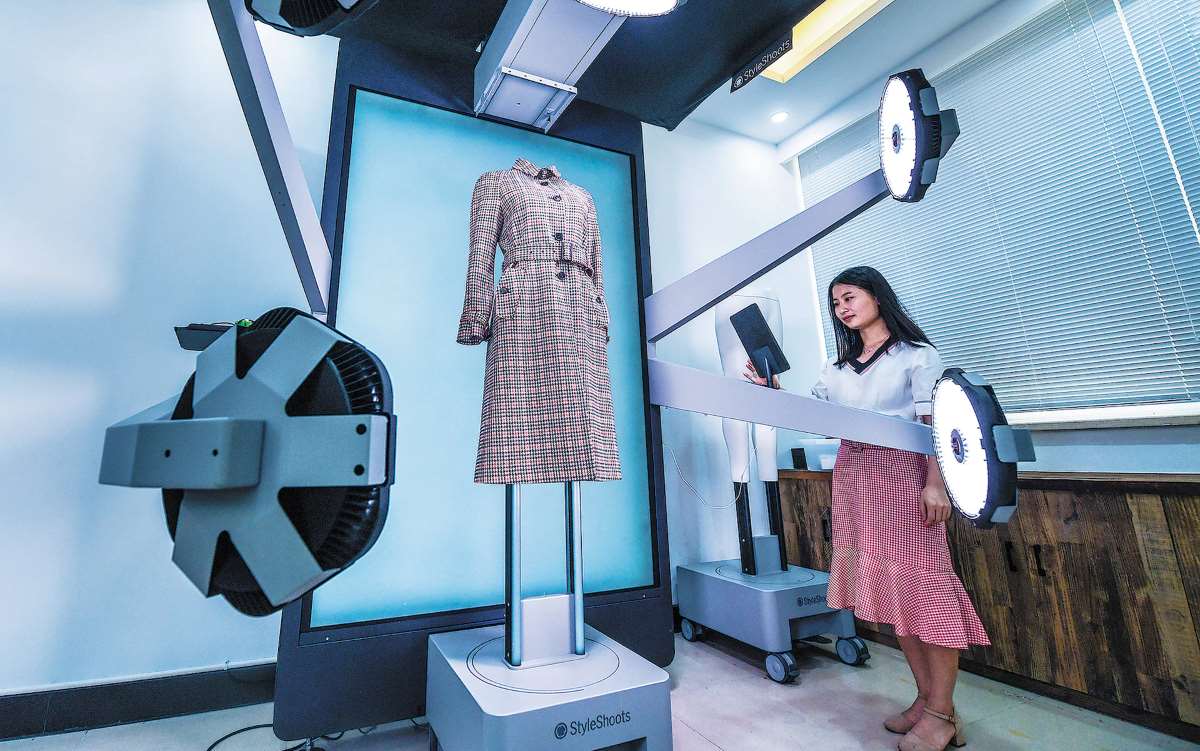Manufacturing Redefined
Digital transformation has today become a crucial step forward for manufacturers in the apparel & fashion industry.
The rise of digital technologies isn't just a tweak; it's a complete overhaul of how we make things.
Apparel brands mostly employ digitalization in the business to produce digital apparel before producing actual items.
What does digitization mean for the apparel industry?
The Indian fashion industry is one of the most dynamic and innovative sectors in the world, with a global reputation for its creativity, diversity, and sustainability. According to an industry-credible report published earlier, the industry is expected to grow at a CAGR of 11–12%, reaching a value of $115–125 billion by 2025.
For a fashion brand, digitization means re-imagining how shopping in a digital world should play out, rather than merely digitizing the shopping process for a physical world". The digital transition is greatly impacting almost every industry. Effective data management or business management are just two aspects of this transition: cost savings and improved productivity.
After studying the possibilities of digital technologies, fashion firms have started integrating technology into every aspect of their operations, from manufacturing to post-production.
Interestingly, the digital revolution has injected agility and transparency into the core of production, leading to several key advantages:
- Supercharged Efficiency and Flexibility:
It is quite nuanced to state here that, the complementarities of the best of the two worlds, i.e., 'Supercharged Efficiency and Flexibility' (software and machinery) working together in perfect harmony—that's the "efficiency symphony" digital creates, which in effect may mean managing stock to final sales, everything flows seamlessly and meaningfully.
Additionally, businesses can well adapt production to ever-changing market demands and dynamics, unlocking growth and durable success.
The decisions resting scientifically on the hard data points of manufacturing are a holy grail, without running the risk of guts or hunches ruling the decision-making, thereby empowering businesses to streamline processes, minimize waste, and maximize profits.
Re-emphasizing or underpinning the phenomenon of 'Data insights' guides informed decisions aimed at not only enhancing efficiency purposefully but also minimizing the environmental impact it creates for the good.
Market and consumer data pave the way for open communication with your customers. By understanding their needs, you can deliver on time and adapt to market shifts, boosting both profit and reducing costs, making a case for a customer-first business approach for enterprises.
COVID-19 was a fundamental tailwind for digitization, as it didn't just disrupt lives, it accelerated the need for digital transformation, leading to an un-fundamental surge of online shopping and changing consumer preferences, forcing traditional retail to make major adjustments many of these changes have become permanent, even as we come out of the shadow of the pandemic.
The case in point is " Digitalizing processes like lab approvals, fit samples, and supply chains became essential for survival in these challenging times. Again, very categorically put out, as the new normal of smaller orders and flexible services is becoming increasingly vital. The growing prognosis is that manufacturers who can adapt quickly to changing consumer behavior are the ones who will survive and thrive.".
Creating a narrative as we move ahead, the Internet of Things (IoT) is a game-changer, Let us say connecting day-to-day objects to the Internet and revolutionizing experiences is exhilarating as emerging tech takes dominance.
The illustration of smart yoga pants with built-in sensors that guide you into perfect alignment is something interesting to underscore!
By sharing the granular details of how the magic of Artificial Intelligence (AI) helps tangibly analyze mountains of data to generate insights for efficiency improvements with a complete view of operations, businesses can optimize every step of the process, which can be very intriguing.
An area of concern is the loss of human touch in fashion design and garment making.
Given the reality of the day's sustainability pressures facing the industry and the need to streamline processes, digital transformation has become a necessary step forward.
With the increasing awareness of environmental and social issues, sustainability has become a core value for the apparel industry. Indian apparel/fashion brands are adopting eco-friendly and ethical practices in their supply chains, production processes, and marketing strategies.
For example, many brands are using organic and recycled materials, reducing waste and carbon emissions, and promoting fair labor practices.
Spotlight on Indian fashion having experienced is pretty intriguing undergoing a digital green revolution! To illustrate the same phenomenon, many clothing brands, such as Nike, Adidas, & Uniqlo, are the front-runners in deploying intensive tech tools to become more responsible, eco-friendly, and ethical. This is how it goes:
- Going digital for sustainability
- Tech for Trust
- Efficiency through innovation is one way to demonstrate the underlying commitment to embrace technology @ scale
By embracing digitization, Indian clothing brands are quite visibly prioritizing the environment, social responsibility, and a smoother experience for you, the customer.
How Digital Took the Wheel
Geographical limitations are no longer an issue, thanks to technology, as customers can now shop anywhere.
The digital age isn't just making manufacturing efficient, it's making it adaptable. By embracing these advancements, businesses can ensure continued growth and stay resilient in a constantly evolving market.
An important parameter is that, with its assistance, brands can produce more designs in less time without having to wait for manufacturing. It presents opportunities to save time and costs by enabling profitable production of small quantities of products.



